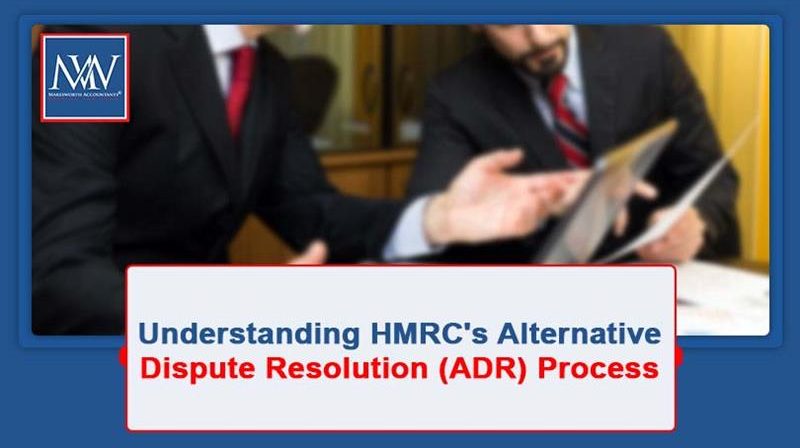
Understanding HMRC’s Alternative Dispute Resolution (ADR) Process
HMRC’s Alternative Dispute Resolution (ADR) process was introduced over a decade ago, with the intention of providing an ‘alternative’, cost-effective method for dealing with disputes between taxpayers and HMRC. ADR is a free service, although taxpayers can involve a professionally accredited mediator from outside HMRC at their own cost.
The ADR process
The process allows for the involvement of a trained ‘facilitator’, who works with both parties to resolve the dispute. The idea is that in a stalemate situation, an independent facilitator acts as a neutral third-party mediator.
As has long been the case, the ‘independent’ mediator is an HMRC officer who has been specifically trained, from a different team within HMRC having had no prior involvement with the case. Mediation meetings default to either video or telephone, therefore any taxpayer who wishes to conduct a meeting in person will need to make representations to the mediator early in the process.
An application for a case to be considered is made online and may be made at any time, although it is more appropriate to apply once all the facts of a case have been established and an impasse has been reached between the two parties. Either HMRC or the customer can suggest the use of ADR. The dispute is then referred to the mediator who will decide whether the case is suitable for ADR within 30 days.
What types of dispute can be raised?
HMRC does not offer ADR in specific instances such as debt recovery or automatic late payment penalties, high-income child benefit charges, tax credits, PAYE coding notices, disagreements regarding a point of law, or cases where HMRC criminal investigators are involved. HMRC will not usually allow mediation in disputes on the same issue as one that it intends or has taken before the Tribunal.
If the dispute cannot be resolved through mediation, then the formal internal review process, or an appeal to the Tribunal, may be used instead.
Benefits of ADR
The primary benefit is the reduction in cost for both parties. It also allows both parties to step back, reassess the situation and, with the help of a trained facilitator, attempt to resolve the issue without the added stress and cost of going to a Tribunal.
Another significant advantage is the time it saves. By using ADR, the back-and-forth of letters between the taxpayer and HMRC is eliminated, and a clear timetable for the process is established. The expectation is that a case accepted for ADR will be settled, or at least be out of the ADR process, within four months, making the process more efficient and productive for both parties. To meet this expectation, both the taxpayer and HMRC must commit to providing information requested by the mediator within 15 days. Where HMRC needs to obtain approval for any settlement agreed at the mediation, this must be done within a week of the meeting.
A ‘dedicated helpline’ is available to provide support and guidance throughout the ADR process. This helpline is intended to speed up the service and to be an introduction to the process. Taxpayers who may be considering applying for ADR but are unsure whether their specific case fits the criteria, can speak to a qualified member of the ADR team and be advised accordingly. The ‘dedicated helpline’ is not intended to answer questions relating to a specific case but to advise whether the procedure is suitable for the caller’s particular problem.
Practical point
The relatively low uptake of ADR tells a story. HMRC’s Annual Report and Accounts 2023- 2024 show 1,309 applications made to ADR during the tax year – a 29% increase on the previous year; of those, only 512 applications were accepted, and 83% of those resolved. Either taxpayers are unaware of the service or if they are, they do not think the case will result in their favour so do not bother.
Partner note
https://www.gov.uk/hmrc-internal-manuals/alternative-dispute-resolution-guidance
https://www.gov.uk/guidance/tax-disputes-alternative-dispute-resolution-adr
Fact sheet – possibly give to clients:
For more information, Book a Free Consultation
Need Accountancy Support?
For information on bespoke training, or if you have any other questions for Makesworth Accountant, please fill in your details below
















 151
151